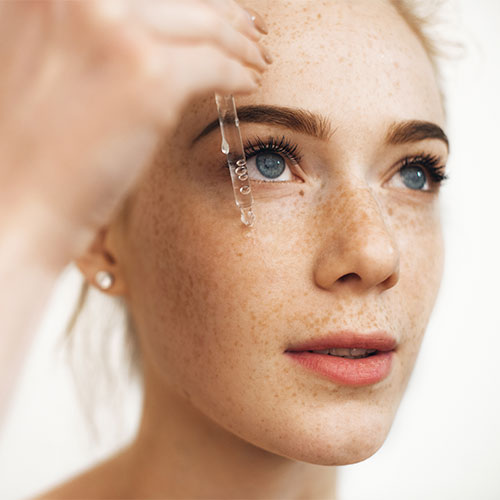We know that vitamin C is vital for our health and immune system. Recently, it has also become popular in the beauty industry in creams, serums, toners, and many more. Dermatologists and beauty experts have increasingly begun to recommend vitamin C. Let’s see what it’s all about.
Credits: yesstyle.com
What does vitamin C actually do?
Foremost, it’s noteworthy that our bodies must obtain vitamin C from food. The body indeed synthesizes many vitamins but vitamin C is excluded. It’s naturally found in many fruits and vegetables, especially citrus. We’ve all probably heard stories about sailors stowing lemons to avoid the legendary scurvy, a disease caused by vitamin C deficiency.
Vitamin C comes in different forms. The active form, L-ascorbic acid, is the most potent and is used in medicine and dermatology due to its highly antioxidant properties and its benefits for skincare.
We’ve previously discussed in an article UV skin damage. Sun damage occurs when free oxygen radicals form in the skin cells during exposure. Vitamin C is an antioxidant that uniquely fights against free radical formation. In addition, numerous tests have proven vitamin C’s regulation of collagen synthesis and natural depigmentation, and it’s mildly anti-inflammatory. These qualities are both useful for aged, sun-spotted skin and for usage in your youth.
Credits: shefinds.com
How can vitamin C be used in skincare?
It may seem like a good idea to take vitamin C supplements, and indeed, for the immune system and overall health it is. In the clinical studies, however, oral consumption failed to show any skin improvements. Hence, it’s best to buy a skincare product that has up to 20% vitamin C concentration. But be careful with storage because the sun damages vitamin C.
Choose a formula that works in tandem with your personal beauty routine. Apply it a few times a week at first. Once your skin has acclimated to this concentration, apply it daily. Carefully apply it around the eyes to avoid adverse local reactions, which usually consist of redness, a stinging sensation or rash, though they’re highly rare.
Credits: foreo.com
Does it help against aging?
Indeed. Vitamin C is a powerful antioxidant that maintains a healthy cellular metabolism and homeostasis. It’s perfect for the overall health and composition of the skin. Consider it as a vitamin that can reverse solar and environmental damage, when used correctly.
Along with vitamin C, consider applying sunscreen and moisturizers to keep your skin composition like that in your 20’s. Oh, and always remember to apply on the neck and below the eyes!







